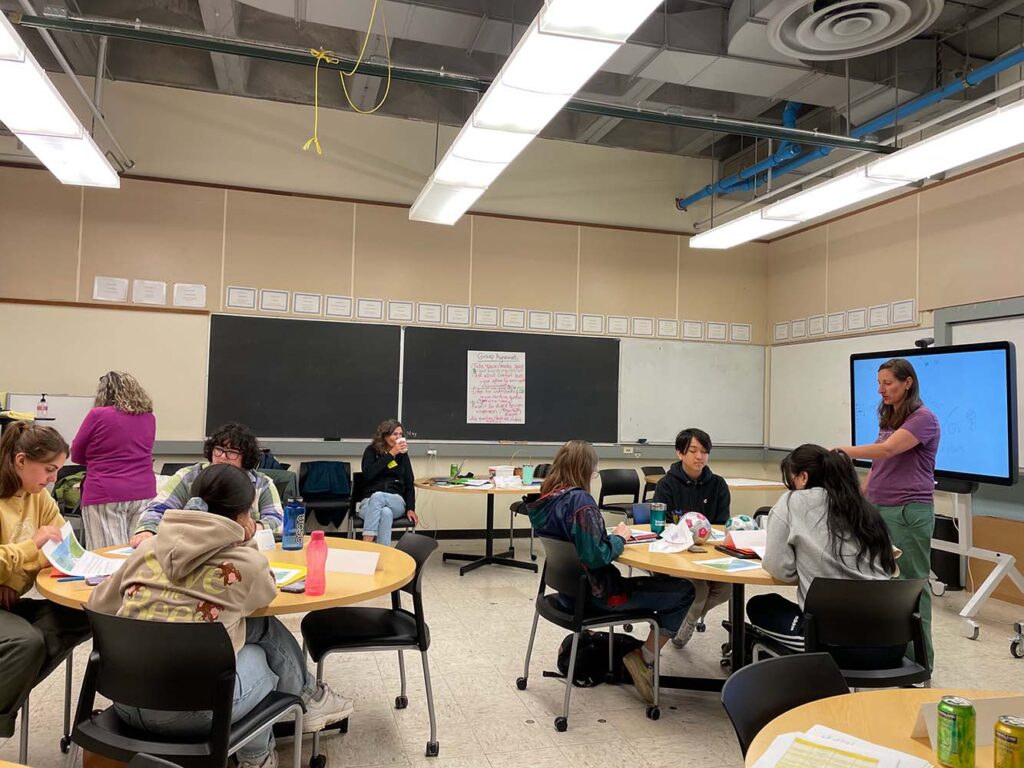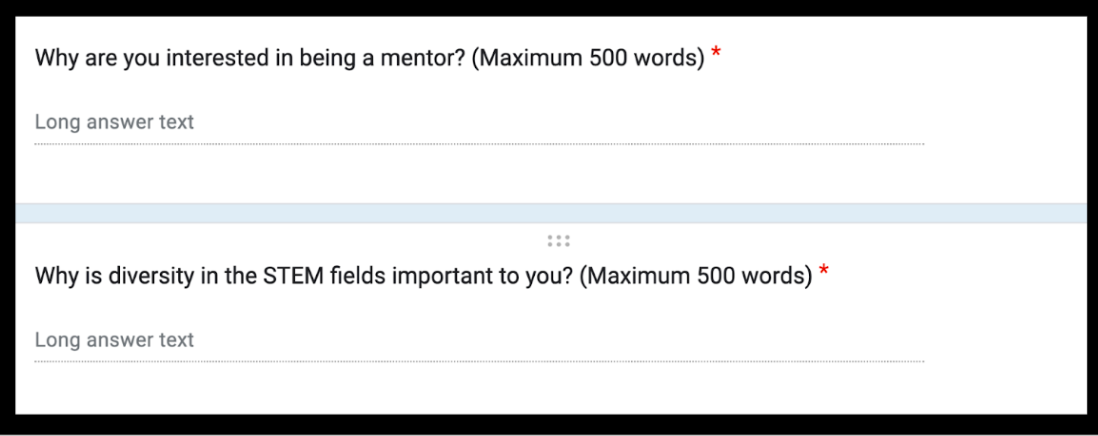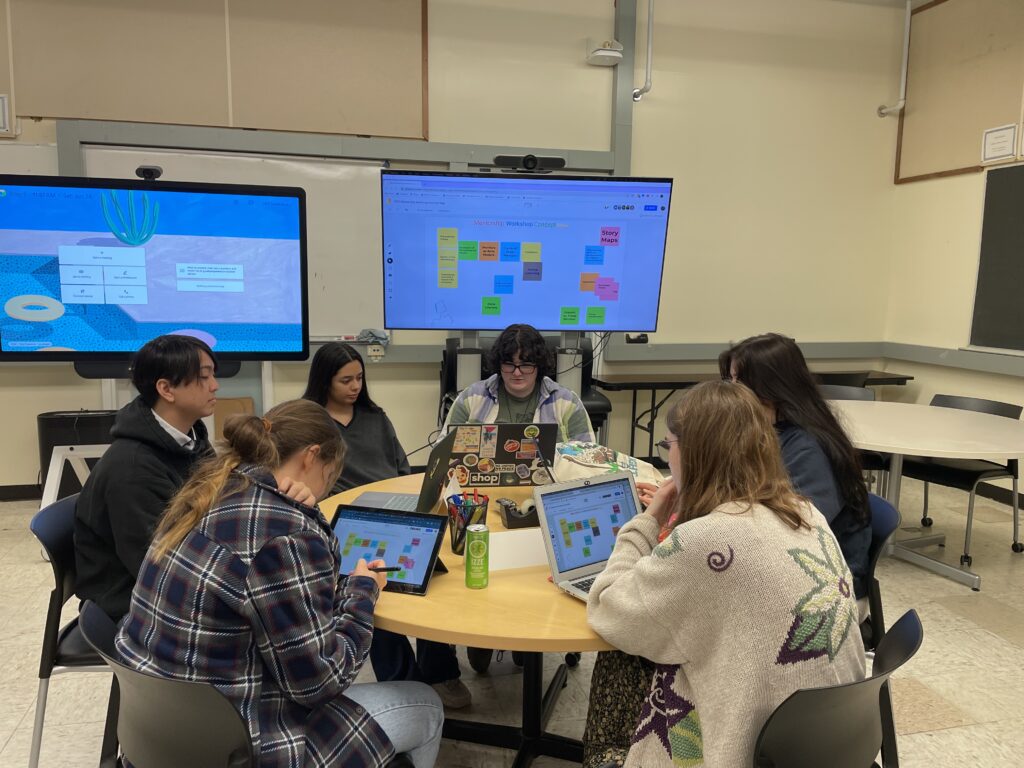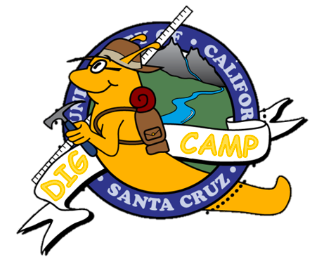Undergraduate Mentor Recruitment and Selection

In order to recruit and select undergraduate mentors for the DIG CAMP program, we developed a three-tiered online application process involving:
1) surveying general interest in participating in the program for UC Berkeley and UC Santa Cruz geosciences students.
2) a mentor application that asked applicants to upload a resume and fill out two essay questions (Figures 1 and 2).
3) an acceptance and commitment form for selected mentors, in order to outline expectations and clarify components of the experience and ensure certainty that selected applicants could attend all required training, camp, and follow-up days.
The acceptance and commitment form was an addition to the second iteration of DIG CAMP because during the first year it became clear that mentors didn’t realize at the beginning the extent of the commitment they were making and/or thought dates and attendance was more flexible than expected. All mentor application forms included clear language outlining the tangible and academic benefits of participating in the program, including stipends, professional development, and networking. Two co-PIs from the DIG CAMP program independently and holistically screened each application package. Then, the two co-PIs discussed their screening matrix and came to consensus on which applicants should be selected, identifying alternates when appropriate. We didn’t conduct interviews during the DIG CAMP program, but we recommend future programs conduct interviews in order to make sure mentors and program staff have a chance to meet and discuss all aspects of the program prior to selection.


Mentor Training
Prior to DIG CAMP, mentors attended a multi-day mentor training workshop collaboratively led by program staff. The workshop was held in person at UC Santa Cruz and was designed to engage mentors in fourteen learning outcomes related to equitable and inclusive facilitation, active learning, and effective mentorship.
The DIG CAMP staff team worked together to use the process of backward design to
1) articulate learning outcomes.
2) think about how learning outcomes could be assessed.
3) design evidence-based, active-learning activities that engaged participants in each learning outcome.

For example, a learning outcome that was of the highest priority for the workshop was, “ Mentors will engage in community building activities that emphasize common ground and sense of belonging among participants and staff.” In order to reach this learning outcome, workshop designers spent significant portions of time at the beginning, throughout, and at the end of the workshop having mentors interviewing one another, sharing personal background and common experiences, and completing fun ice breakers that helped participants feel comfortable asking questions and getting to know one another and the staff team. Staff also utilized their expertise in student success programming to bring in resources from the literature, the Lawrence Hall of Science, and UCSC’s ACE program to address specific education content that was prioritized in the workshop (ie for the learning outcome “Mentors will use the concepts of growth mindset, help-seeking behavior & stereotype threat to explore educational equity.”) Some learning outcomes were psychosocial, some were focused on mentorship and facilitation, and some were based in the geosciences content that mentors would need to understand to successfully facilitate DIG CAMP (ie for the learning outcome “Mentors will understand the data science workflow process and what each step entails”), so staff worked together to blend a combination of modules that would highlight these learning outcomes in an engaging and collaborative modality for student mentors.
Links to Mentor Training Resources
Google Slides from 2023 Mentorship Training Workshop

